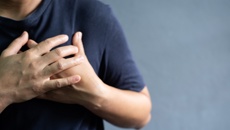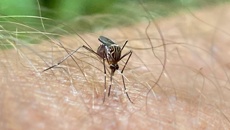The new Covid-19 cases in New Zealand are two women from the United Kingdom who were allowed to travel to Wellington on compassionate grounds, director general of health Ashley Bloomfield says.
Both cases are from the same family. One of the women is in her 30s and the other is in her 40s.
They were visiting a relative in Wellington, who has since died. Bloomfield said the pair drove from Auckland to Wellington for the visit.
The women had been careful not to put anyone at risk, he said, and the women had not stopped for petrol and had gone to the toilet on the side of the road.
"In this instance, the women did everything that was asked of them," Bloomfield says.
He said the women's car was a private car dropped off to them from a relative.
Two teens flee from isolation after being let out for funeral
Bloomfield confirmed that two Hamilton teenagers were granted an exemption to attend a funeral and ran off afterwards. They have since been located, and one is in managed isolation, while the other is in an agreed community arrangement.
He did not know how many days their whereabouts were unknown.
British women's movements in New Zealand
- Lockdown flouters: Teens went AWOL after granted funeral exemption
- PM reacts as two new Covid-19 cases arrive at NZ border
- Covid-19: All you need to know about NZ's border controls
The two British women were in managed isolation from their arrival in New Zealand on June 7 and permitted to leave Auckland to travel to Wellington on June 13 in a private vehicle, he said.
The vehicle was dropped to their hotel and drove to Wellington, where they only had contact with one family member.
The women flew from the UK to Brisbane via Doha and then on to Auckland. They were now in isolation in Wellington. It was possible they picked up the infection in the UK or on the flights, he said.
They were tested in Wellington, and all workers had used PPE.
Other potential contacts include those on the same flight from Brisbane, and those in the same managed isolation facility in Auckland, including staff.
Mobile swabbing teams had already been sent to the hotel. Staff there will be stood down and tested, Bloomfield said.
Footage was also being looked at when the women moved through the airport, and any staff who came into contact with the women will also be stood down and tested.
Women not tested before leaving isolation
A negative test is usually needed before a person granted an exemption can leave managed isolation, Bloomfield said, but there was an exception made in this case.
Bloomfield said only people deemed to be low risk can be eligible to be released from managed isolation.
One family member is considered to be at risk so far, though people in the Wellington Hotel and on the same flight are deemed to be close contacts.
Bloomfield did not know how many close contacts there were at this stage.
The women had face masks for their journey, he added.
The current system can trace several hundred cases at a time, he said.
"Our aim here is to trace 100 per cent of people. We know exactly where they are."
He said he was not nervous that the women had infected other people.
Compassionate exemptions are not allowed for funerals but can be given for a visit to a dying relative, or to grieve a relative who has died with a small group of people.
The women had been in managed isolation at the Novotel Ellerslie in Auckland before they traveled to Wellington.
Bloomfield did not know how many close contacts there were at this stage.
The women had face masks for their journey, he added.
One of the women said in hindsight that she had had minor symptoms.
"A new case is something we hoped we wouldn't get but it's also something we expected, Bloomfield said.
Bloomfield said compassionate exemptions are only granted under strict conditions, and everyone granted an exemption is assumed to be a risk of Covid-19 and all precautions are taken to manage that risk.
Today's news underscores the decision to scrap any exemption for those wanting to leave managed isolation for a funeral or tangi, he said.
He said it wasn't surprising that people arriving at the border had tested positive, especially from the UK, where Covid-19 is not well contained.
He said the criteria for compassionate exemptions were clear. If an exemption is granted, a thorough plan has to be in place to manage the risk.
He said he would look into whether the women were asked about specific symptoms when they arrived in New Zealand.
It was possible they were asked a general health question, and if each symptom was asked of them, they may have been placed in quarantine instead of managed isolation.
Ardern reacts to the two cases
"There are eight million cases worldwide. We still have New Zealanders returning home," Prime Minister Jacinda Ardern said earlier today when asked about the two new cases.
"What this does prove is the importance of a rigorous system at our border."
The Health Ministry said they are related to the border as a result of recent travel from the United Kingdom.
She said New Zealand was ready for a second surge of cases, but the focus was on preventative measures.
"I've said all along, New Zealand would continue to have cases because it continues to surge around the world. We of course are well-placed to manage it, though."
She said that Bloomfield will also talk about "precautionary and rigorous testing as a result of the cases today".
National's health spokesman Michael Woodhouse was critical of the Ministry of Health's two hour delay in giving details about the two new cases.
"I would have thought that given their previous practice they would have been much more clear about what's happened and why and what their response to it is."
Last week Bloomfield said exemptions for people to leave quarantine or managed isolation at the border to attend a funeral or tangi would no longer be given.
That was because of the risk of an imported case of Covid-19 spreading into the community.
Today broke the streak of 24 days of no new cases.
It was also the Health Ministry's elimination day, meaning it had been 28 days since the last case of community transmission had come out of isolation.
That case was a Ministry for Primary Industries worker who tested positive at the border on April 30, and who came out of isolation on May 18.
He had been tested as part of a surveillance programme, which Bloomfield has said would continue to focus on the border.
Ardern has previously said she would not rule out the possibility of moving back up alert levels.
Every traveller who arrives into New Zealand on a flight which departs from another country must go into one of two facilities for an isolation period of 14 days.
If a traveller is symptomatic on arrival, they are placed in a quarantine facility for two weeks. If they are not symptomatic on arrival, they are placed in an approved managed isolation facility for two weeks, according to the ministry's website.
Since June 8, all travellers who arrived in the country were tested for Covid-19 at their respective facilities.
"Specific facilities are being used for a small number of travellers who are unwell when arriving in New Zealand. These people are in quarantine and are unable to leave their room," the ministry website says.
"Separate facilities are being used for travellers who are well. While in these facilities, they are able to go for a walk within the confines of the facility, but will need to limit contact with others.
"Travellers at these facilities may not leave the facility grounds for any reason unless they have express approval from health officials and are accompanied by health officials."
At the end of their two-week isolation period, travellers are able to leave the facility and travel to their final destination, given they have a suitable travel plan in place.
Take your Radio, Podcasts and Music with you









